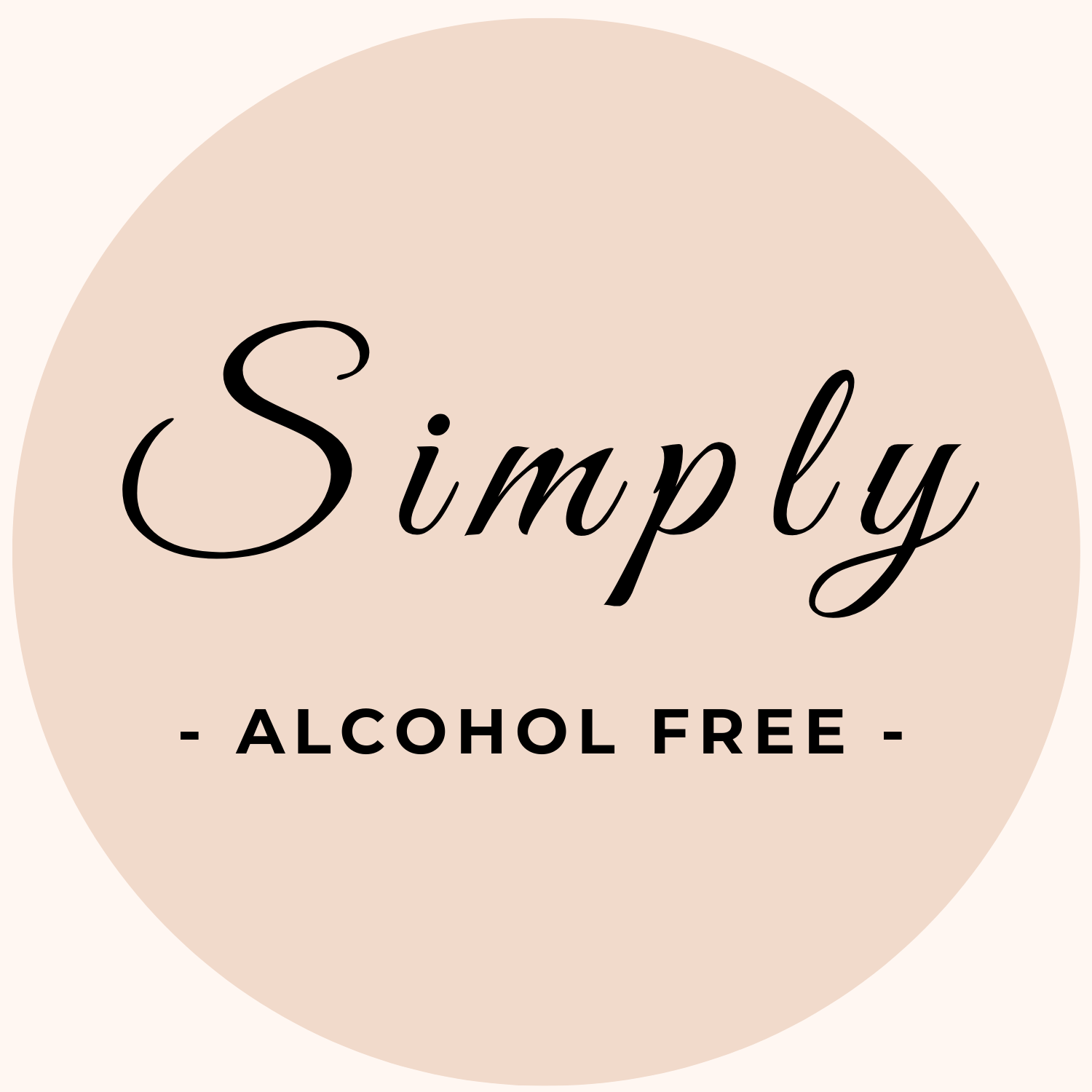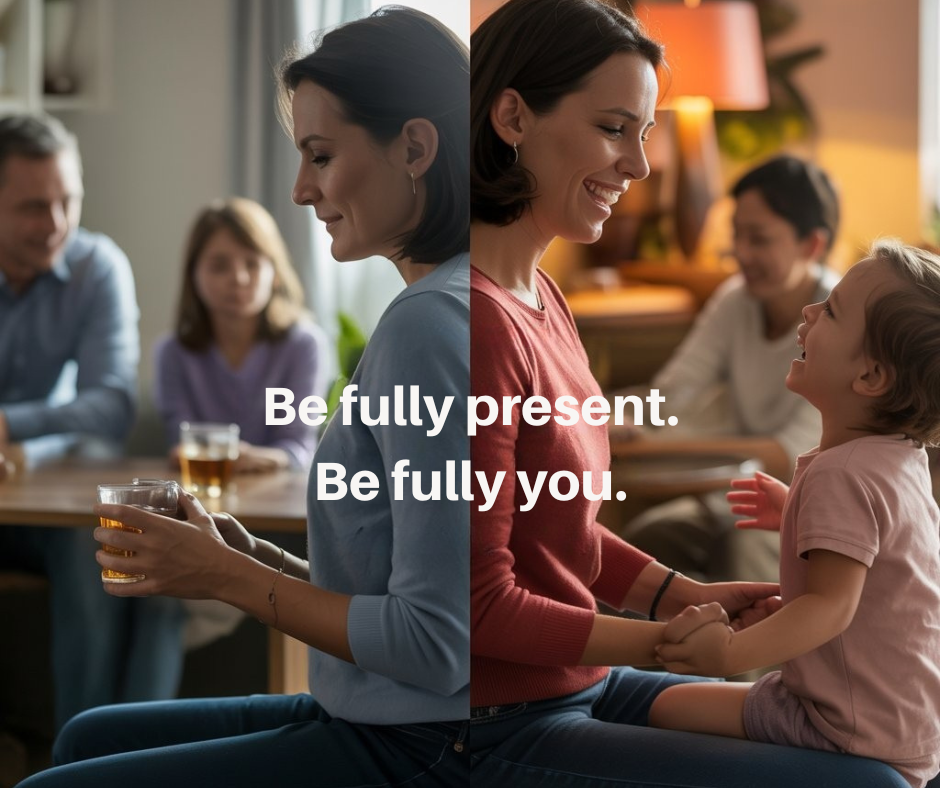In a world where socialising often revolves around alcohol, the decision to live alcohol-free can feel like swimming upstream. Whether it’s a glass of wine at dinner, beers after work, or champagne at celebrations, drinking is deeply embedded in many social norms. But for an increasing number of people, stepping away from alcohol is not just about avoiding hangovers or improving health, it’s about reclaiming presence. The kind of presence that enriches relationships, deepens connections, and allows one to show up fully for the people who matter most: family and friends.
The Illusion of Connection
Alcohol is often marketed as a social lubricant, something that helps you relax, open up, and bond with others. And in the short term, that might feel true. A few drinks in, and the conversation flows more freely, laughter comes easily, and everything seems a bit more vibrant. But the connection alcohol creates is superficial. It relies on lowered inhibitions and altered perception rather than genuine presence or deep listening. Over time, that illusion of connection can replace the real thing, and relationships begin to suffer.
When you’re under the influence, even mildly, you’re not fully there. You miss subtleties: the look on a loved one’s face when they need support, the change in tone when someone is feeling overwhelmed, or the unspoken signals that children send when they want attention or reassurance. Alcohol dulls more than just your senses, it mutes your capacity to connect on a meaningful level.
Sobriety: The Path to Being Present
Choosing to live alcohol-free shifts the entire dynamic of how you relate to the world and the people in it. One of the most profound changes that occurs is an increased ability to be present, not just physically, but emotionally, mentally, and spiritually.
Presence means listening deeply without formulating your next response. It means noticing body language, remembering details, and being aware of the emotional undercurrents in a conversation. It means waking up without regret, fully capable of tackling the day ahead, and able to provide support to those who need you.
When you’re sober, you don’t escape from difficult moments, you meet them head-on. That might sound intimidating, but it builds trust. Your loved ones learn that they can rely on you, not just when things are good, but when life gets complicated.
Alcohol-Free Parenting: A Gift of Attention
For parents, being alcohol-free can be especially transformative. Children are incredibly perceptive. They notice when you’re distracted, when your mood shifts after a drink, and when you’re not fully available to them. They may not always have the words to express it, but they feel the emotional absence.
Being present as a parent isn’t just about showing up for soccer games or bedtime stories, it’s about being emotionally attuned. It’s about responding patiently to tantrums, answering hard questions honestly, and modelling healthy coping strategies.
Without alcohol in the picture, there’s more energy for play, more patience for bedtime routines, and more clarity in setting boundaries. You become the safe, grounded presence your children need in a world that often feels unpredictable.
Supporting Friends with Authenticity
Friendships also deepen when you’re alcohol-free. Sober socialising may take some adjustment, especially if your friendships were built around drinking. But what often emerges on the other side is a more authentic connection, one not dependent on altered states but on mutual respect, shared values, and meaningful conversation.
You begin to attract or rediscover friends who appreciate you for your clarity, your reliability, and your emotional honesty. You become someone who remembers birthdays, follows up after tough conversations, and shows up on time, not just physically, but mentally and emotionally. And when your friends are struggling, you’re present in a way that many others aren’t. You don’t offer distractions or temporary relief, you offer real support.
Handling Emotional Discomfort Without Numbing
One of the reasons people reach for alcohol is to numb emotional discomfort. Stress, sadness, boredom, anxiety, alcohol offers a quick, temporary escape. But emotional numbing comes at a cost. You can’t selectively numb pain without also numbing joy, connection, and intimacy.
Living alcohol-free forces you to confront emotions head-on. That might sound difficult, and it is, at first. But it’s also incredibly freeing. Over time, you develop healthier coping mechanisms: journaling, exercise, therapy, meditation, or simply talking things through with someone you trust.
This emotional maturity enhances your relationships. You become more honest about your needs, more open to feedback, and more resilient in the face of conflict. You’re not masking your true self, you’re showing up, imperfections and all, and inviting others to do the same.
Navigating Social Spaces with Confidence
One of the initial challenges of an alcohol-free life is learning to navigate social spaces where drinking is the norm. This might mean having a go-to non-alcoholic beverage, practicing a confident “no thanks,” or even skipping events that no longer align with your values.
But over time, you may find that you enjoy socialising more when you’re sober. You remember conversations. You leave gatherings feeling energised rather than drained. And you wake up the next day with a clear head and no regrets.
Moreover, your example can be quietly powerful. Without preaching or judging, you show that it’s possible to have fun, connect deeply, and live fully without alcohol. You might even inspire others to reevaluate their own relationship with drinking.
Building a Legacy of Presence
Perhaps one of the most beautiful aspects of living alcohol-free is the legacy it creates. For your children, your spouse, your friends, you become a model of integrity, self-awareness, and emotional presence. You demonstrate that it’s possible to live life fully awake and fully engaged.
Being present doesn’t mean being perfect. It means being available. It means putting your phone down during dinner, listening without interrupting, and being willing to sit with someone in their discomfort without needing to fix it or escape from it.
Presence is the most profound gift you can offer, and in a world full of distractions, it’s also one of the rarest. Living alcohol-free is not just a personal choice, it’s a relational one. It says to the people you love: “I’m here. I’m with you. All of me.”
Conclusion: Freedom in Connection
Living alcohol-free isn’t about deprivation, it’s about freedom. Freedom from the fog, from the regret, from the missed moments. And in that freedom, something extraordinary happens: your relationships deepen. You laugh more genuinely, listen more intently, and love more freely.
Being present is not always easy, but it’s always worth it. And when you choose to show up fully for your family and friends, you don’t just improve your own life, you enrich theirs.







